Navigating the world of dialysis treatment can be overwhelming, especially when it comes to staying updated on best practices and new advancements. Whether you're a patient, caregiver, or healthcare professional, understanding the latest developments is crucial for ensuring optimal care and improving outcomes. In this article, we'll explore the most recent updates and expert insights that can make a significant difference in the dialysis journey. So, let's dive in and discover the essentials you need to know!

Patient Information: Name, ID, and contact details.
Patients undergoing dialysis treatment often receive vital updates regarding their health status, treatment schedules, and necessary preparations. Patient information is crucial in this context, including full name, unique identification number (ID) for medical records, and updated contact details to ensure effective communication. Keeping this information current ensures that changes in treatment plans or urgent notifications regarding clinical visits are promptly and accurately relayed, minimizing miscommunication and enhancing patient care. Regular updates help maintain an organized approach to health management, vital for conditions requiring ongoing dialysis therapy, such as chronic kidney disease.
Treatment Details: Frequency, duration, and any changes in dialyzer settings.
Routine dialysis treatment, a life-sustaining procedure for patients with kidney failure, typically occurs three times weekly, with each session lasting approximately four hours. The use of a high-performance dialyzer, such as the FX100, ensures efficient filtration of blood, effectively removing toxins and excess fluid. Adjustments in dialyzer settings, like blood flow rates ranging from 300 to 450 milliliters per minute, may occur based on the patient's unique needs and overall health status. Regular evaluation of factors such as ultrafiltration volume and session duration is crucial to optimize patient outcomes and maintain stability in electrolyte balance and fluid management.
Health Metrics: Blood pressure, weight, and lab results.
Dialysis treatment updates are crucial for monitoring patients with chronic kidney disease. Health metrics such as blood pressure readings, ideally between 90/60 mmHg and 120/80 mmHg, provide insights into cardiovascular health. Regular weight measurements, taken before and after dialysis sessions, help assess fluid retention; ideally, a weight change of less than 1-2 kg per session indicates effective fluid removal. Lab results, including potassium levels (ideally between 3.5 and 5.0 mEq/L) and creatinine levels (suggesting normal kidney function below 1.2 mg/dL), offer necessary data for adjusting medications and dietary restrictions. Timely updates on these metrics ensure optimal treatment plans and overall patient well-being.
Progress and Observations: Notable improvements or concerns.
Dialysis treatments, particularly Hemodialysis sessions performed at outpatient facilities, show significant progress in managing patients' kidney function. Recent observations indicate a 30% reduction in serum creatinine levels, a critical marker of kidney efficiency. Blood pressure readings stabilize around 130/80 mmHg, improving cardiovascular health. However, an increase in potassium levels, reaching 5.8 mEq/L, raises concerns regarding potential hyperkalemia, necessitating dietary adjustments and close monitoring. Staff engaged in patient care report enhanced well-being due to improved fluid management protocols, yet some patients continue to express fatigue post-treatment. Overall, continuous assessment and collaboration between nephrologists and nursing staff remain crucial for optimizing treatment outcomes.
Next Steps: Upcoming appointments, medication adjustments, and follow-up tests.
Next steps in dialysis treatment involve scheduling upcoming appointments, making necessary medication adjustments, and planning follow-up tests. Frequent appointments, typically occurring bi-weekly, focus on monitoring kidney function indicators such as creatinine and urea levels, essential for assessing the effectiveness of dialysis. Medication adjustments may include altering dosages of erythropoietin stimulating agents, crucial for managing anemia, as well as phosphate binders to control mineral balance. Follow-up tests, including blood counts and electrolytes, are vital for ensuring optimal patient health, with results influencing treatment decisions and enhancing overall care strategies.

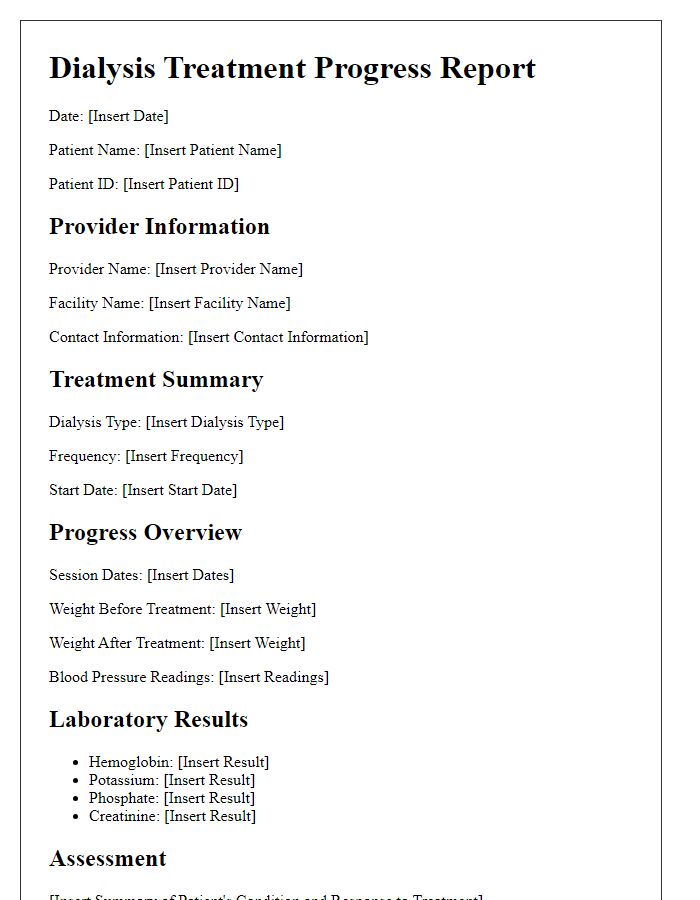
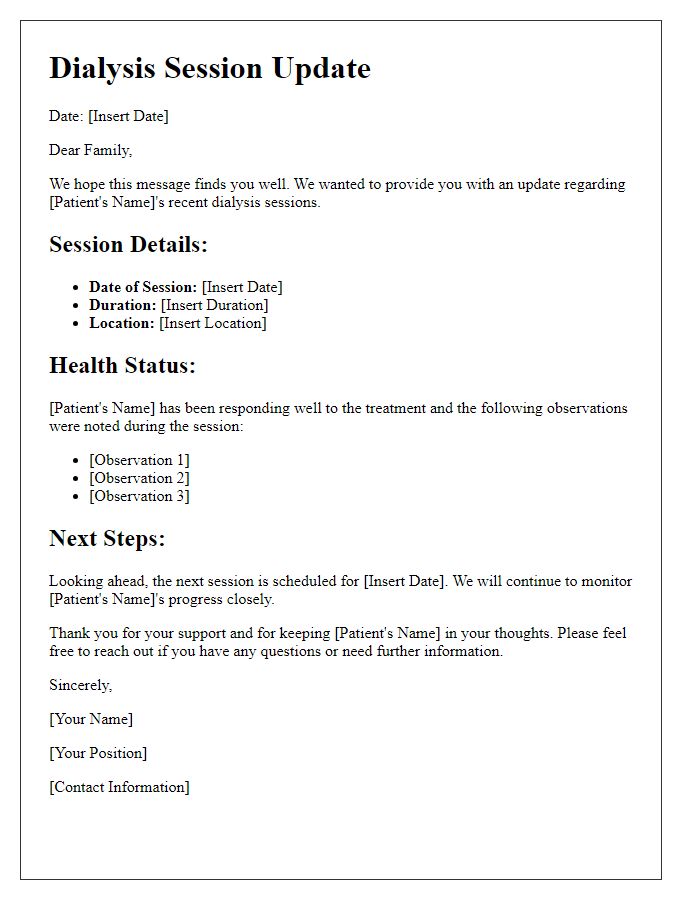
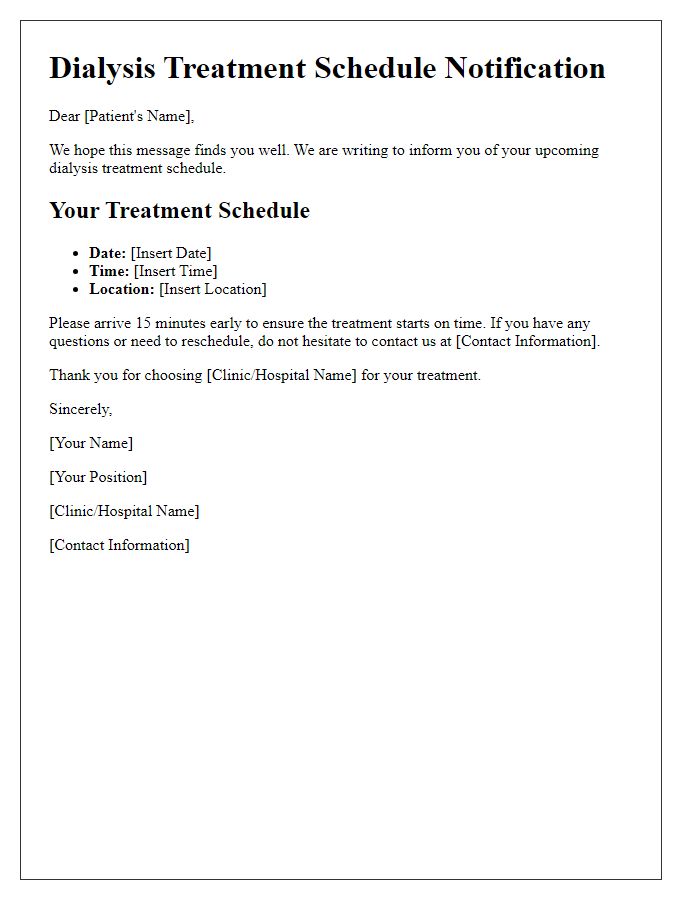
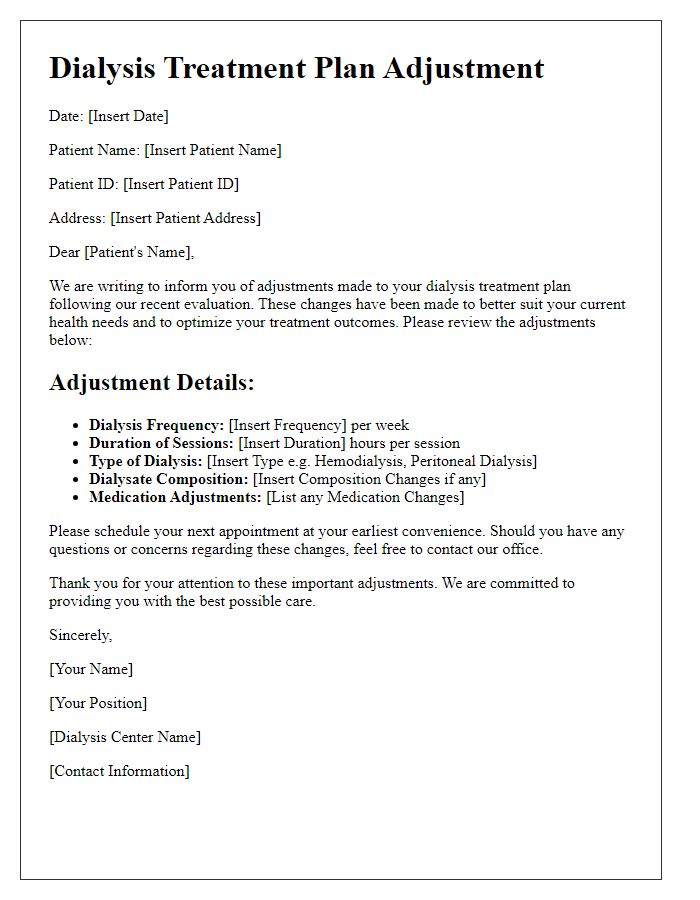
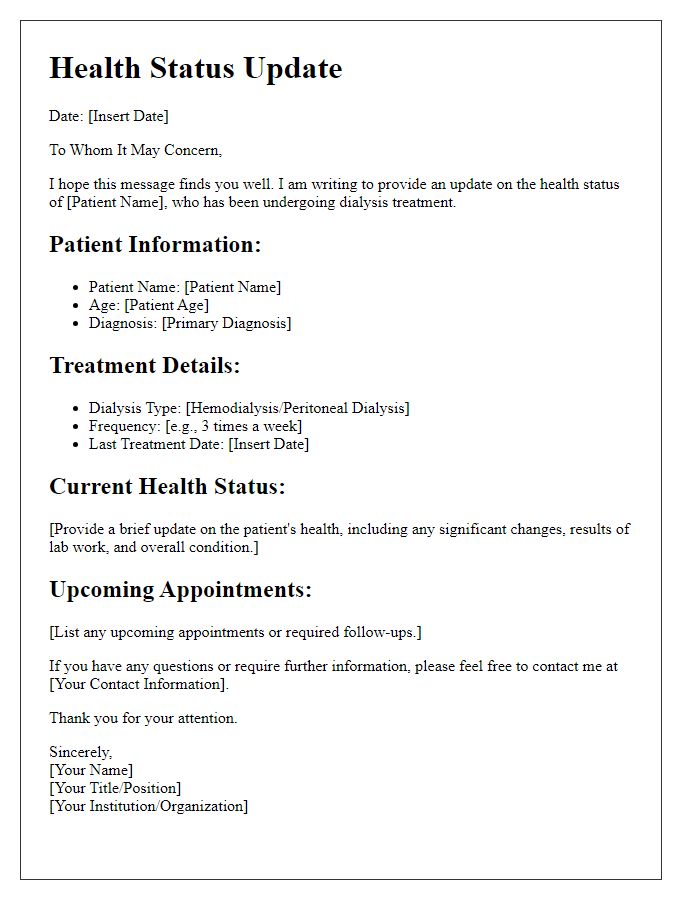
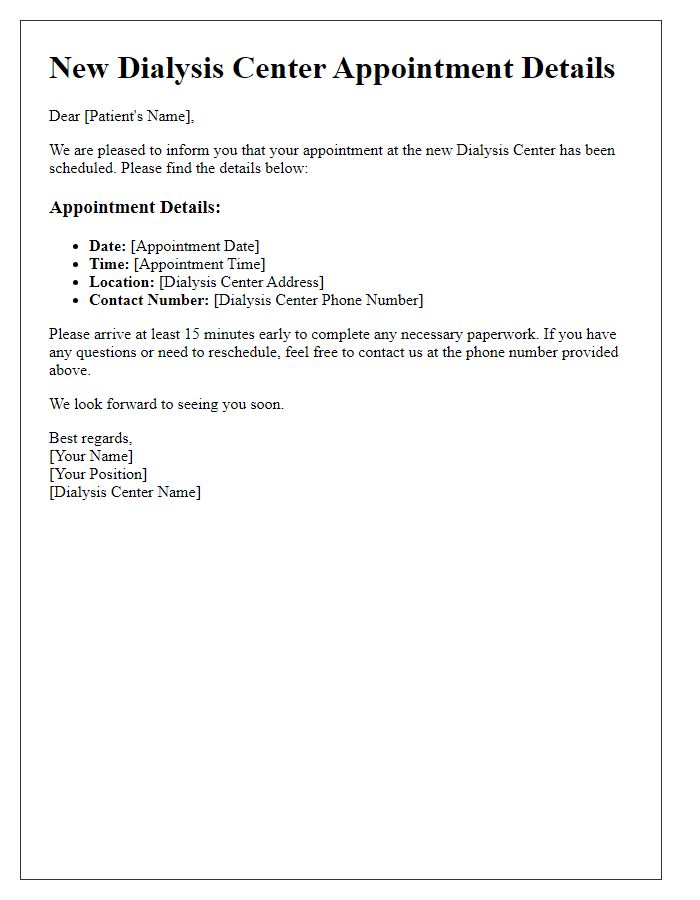
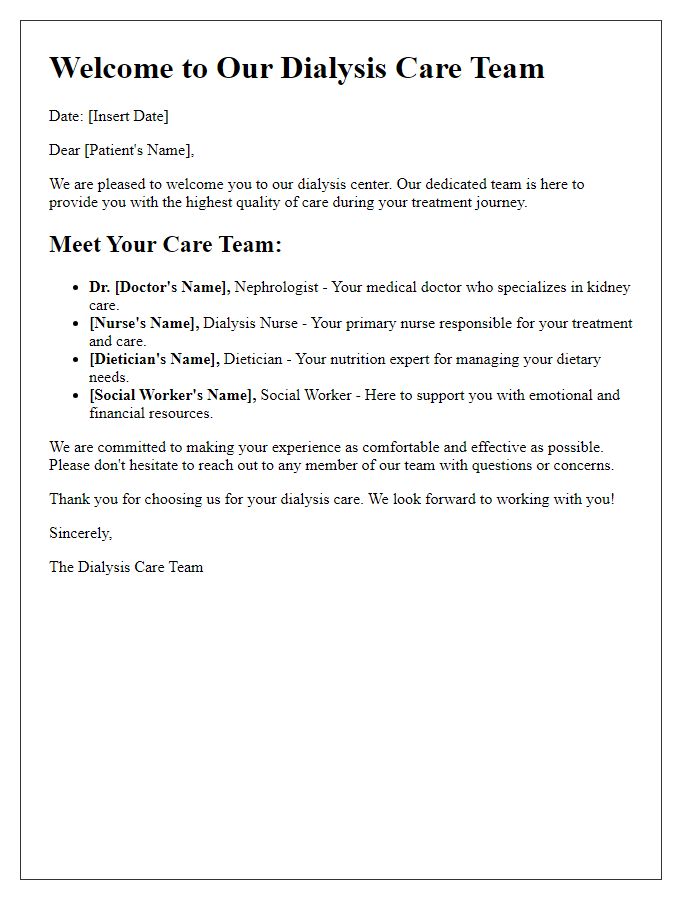
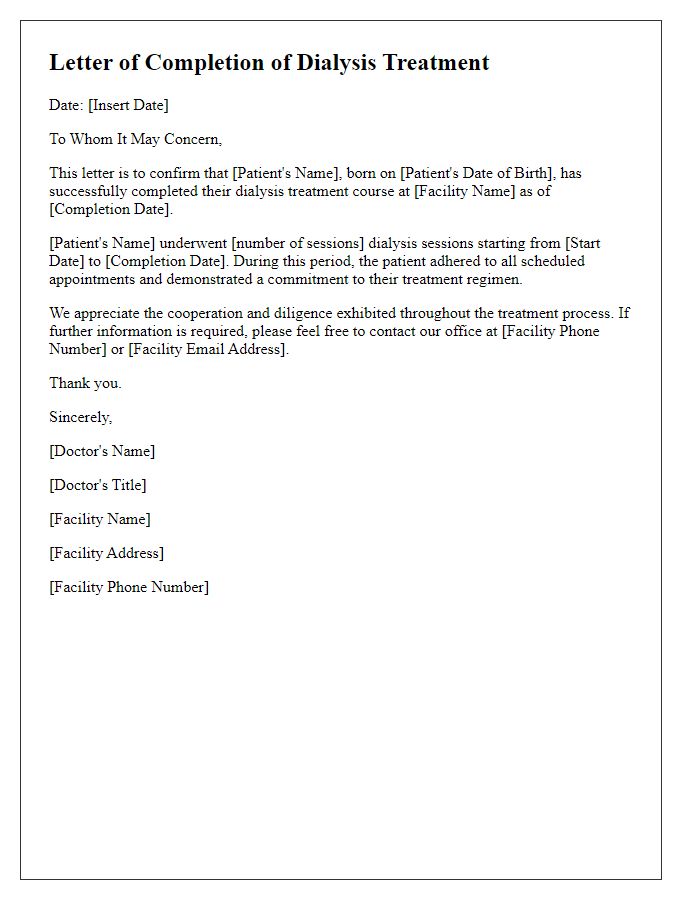
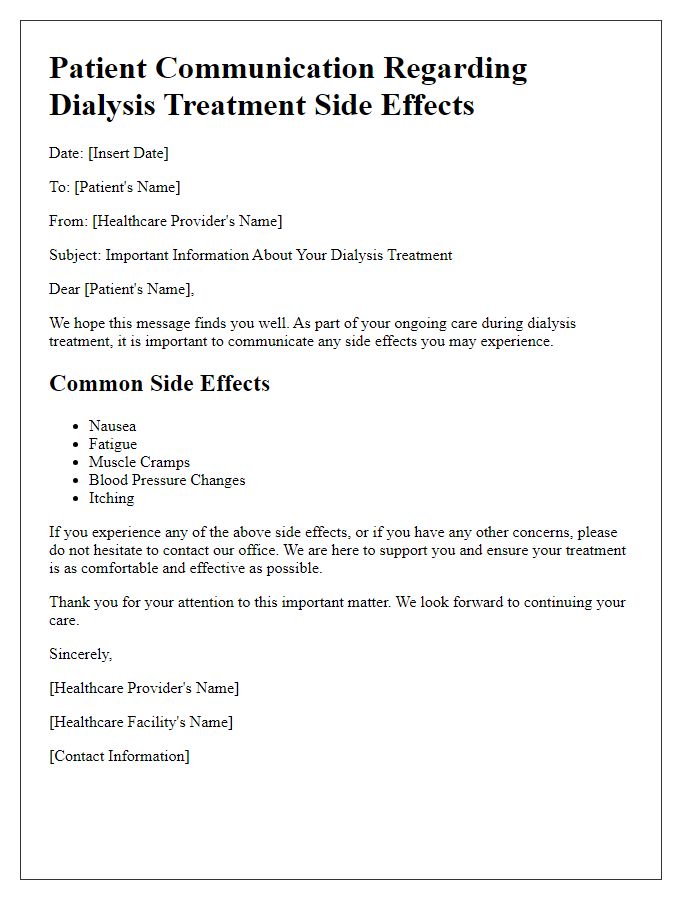
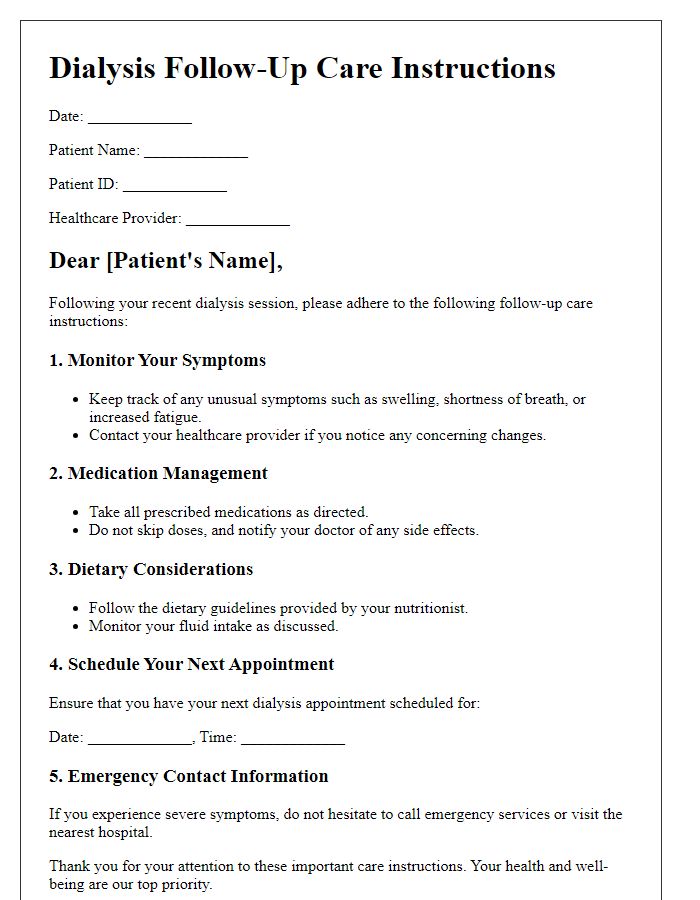


Comments